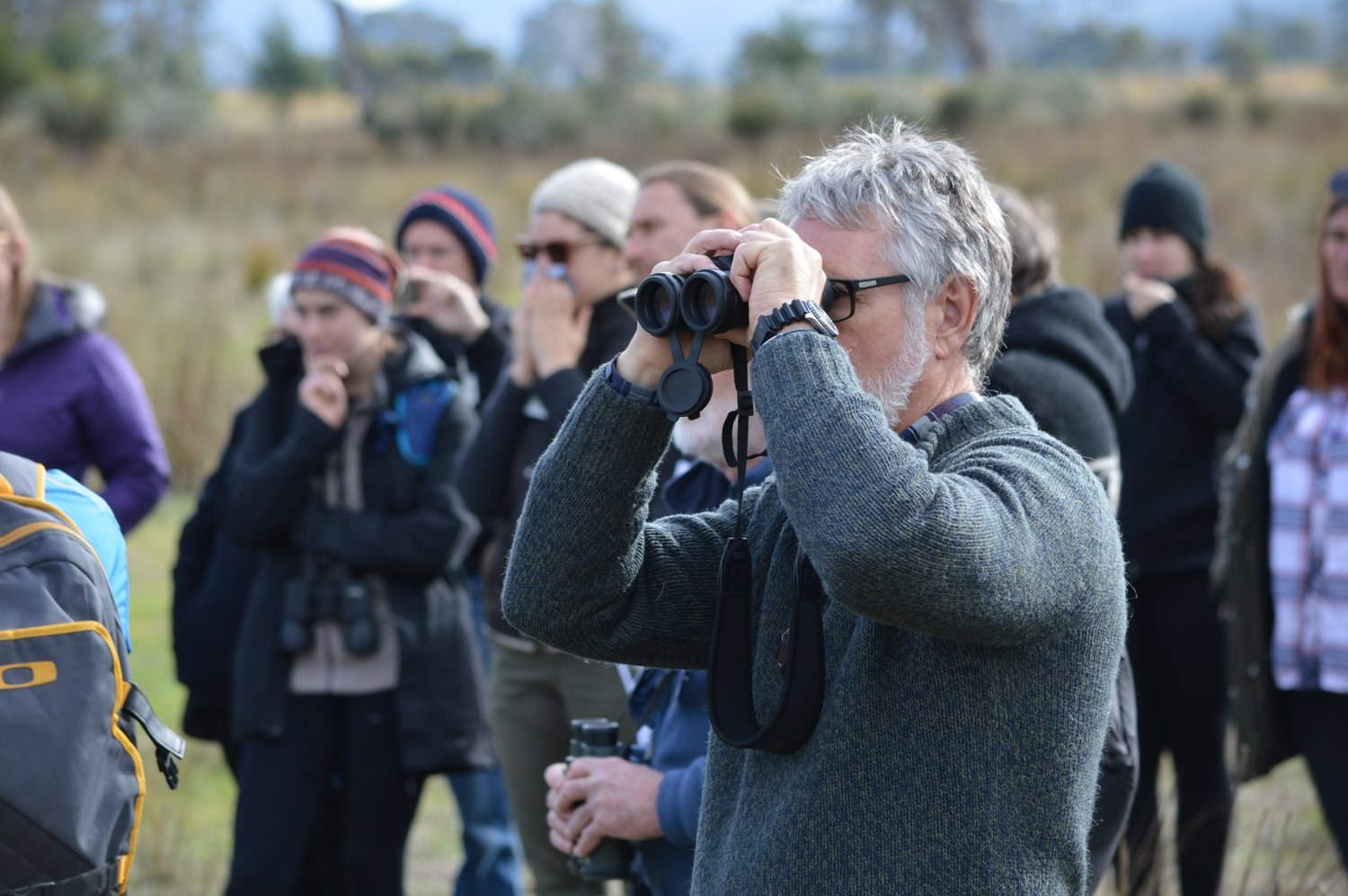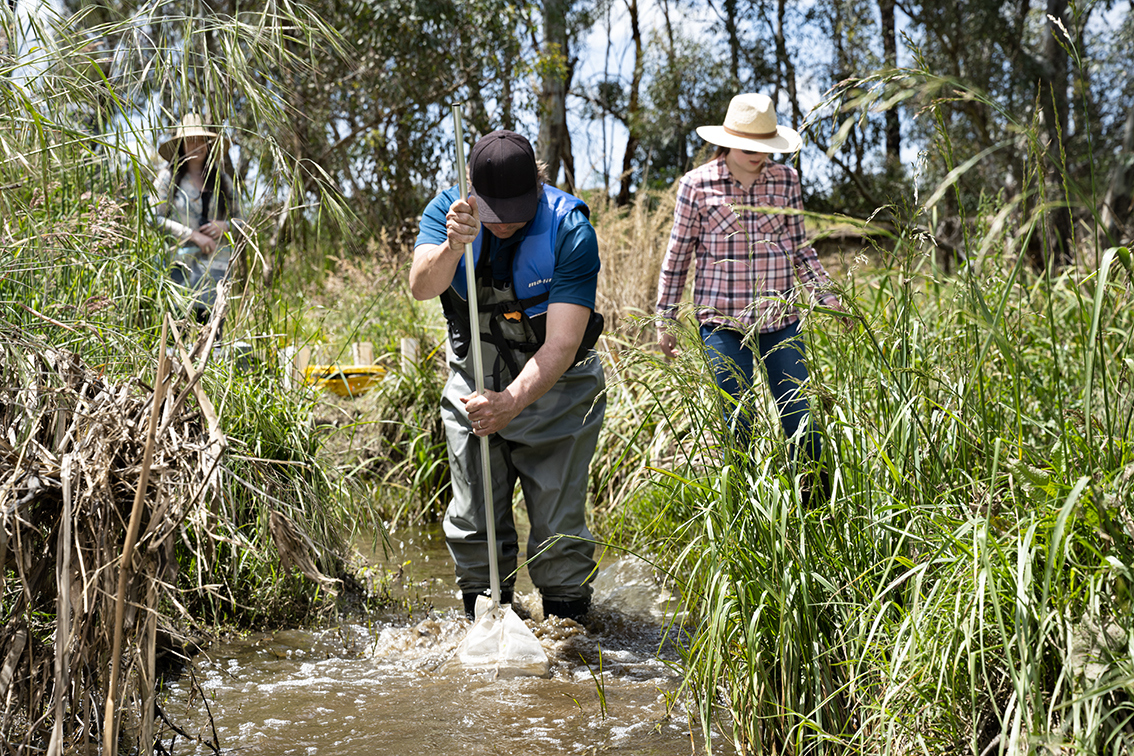
Citizen science in action: Working with a Conservation Ecologist
Get an insight into Bradley Clarke-Wood’s role as a Conservation Ecologist at the Department for Environment and Water, and learn about how citizen science plays a crucial role in supporting biodiversity and conservation.
Words by Bradley Clarke-Wood…
Explain your current citizen science-based conservation project?
I’m currently working on a Limestone Coast Community Photography Expedition, which involves coordination of members of the public, to assist in data collection across 20 Limestone Coast conservation areas over several months.
What are the main goals of your current project, and how do you see your work contributing to the broader field of conservation?
The main goal of our Limestone Coast Community Photography Expedition is to generate data for science and conservation. Many of the Limestone Coast’s conservation areas are not regularly surveyed for biodiversity, and so this is an opportunity to gain a better generalised sense of the distribution of species. Such data feeds into international data repositories (including the Atlas of Living Australia) and are used to better understand patterns in when and where species occur. This contributes to the broader field of conservation by producing usable and verifiable information for natural resource managers and researchers. Importantly, this also creates an opportunity for citizen scientists to gain a greater awareness of their local environment. Most conservation programs include the objectives of developing awareness in the broader community, and this project creates an opportunity for that.
How do you collaborate with local communities or stakeholders in your conservation projects?
My current project was actually developed with the Friends of Parks and Nature Inc. group — Friends of Bool and Hacks Lagoons, and invites other environmental groups (including field naturalist groups) to participate.
The Friends of Bool and Hacks Lagoons are organising four coordinated data collection events (in Autumn, Winter and Spring 2025) across 20 Limestone Coast conservation areas, where participants will be invited to document biodiversity using the iNaturalist platform. This directly helps scientists and resource managers understand when and where organisms occur.
Dates for these 2025 data collection events are 24 May – 1 June, 26 July 26th – 3 August and 25 October – 2 November and you can register your interest here.

Why do you believe citizen science is crucial in conservation, and what role do everyday people play in your research?
Citizen science plays a crucial role in conservation as it empowers locals to contribute to research and monitor their local environment, significantly expanding the reach and impact of conservation efforts. Conservation often involves gathering large amounts of data over wide geographic areas, and citizen scientists — volunteers from all walks of life — can help collect that data. Their involvement allows researchers to cover more ground and gather information that might otherwise be too expensive, time-consuming, or difficult to obtain. Local people are vital in this process because they provide both valuable data and local knowledge that might be missed by scientists who are not familiar with the area or species. Whether it’s conducting bird surveys, processing recordings or documenting the distribution of species, volunteer contributions make research more accurate and extensive.
Moreover, by engaging the public in conservation, citizen science fosters a greater sense of environmental responsibility and awareness, helping to create a broader network of advocates for protecting local environments. Ultimately, citizen scientists are not just data collectors — they are active participants in the conservation, helping bridge the gap between research and action. Their involvement is essential for creating lasting, meaningful change in conservation efforts.
What challenges do you face in promoting and implementing citizen science in your projects, and how do you overcome them?
One of the main challenges is keeping people engaged over time. While it’s easy to get individuals excited about a project initially, maintaining their participation long-term can be more difficult. To overcome this, we focus on creating a sense of community and purpose. Providing regular updates on how their contributions are making a difference, celebrating milestones, and offering recognition for their efforts helps keep participants motivated. Additionally, providing clear, accessible training and easy-to-follow instructions makes participation feel more manageable and enjoyable.
Sometimes also, access to technology or knowledge can be a barrier to participation, particularly in under-served or remote communities. We overcome this by offering multiple ways for people to get involved, whether through apps, paper surveys, or community workshops. We make sure to offer resources in multiple languages, and in some cases, we partner with local organisations to help reach broader audiences.
Finally, not everyone is aware of the value of citizen science, and convincing stakeholders or the public to invest their time and effort can be difficult. To address this, we work on clear and consistent messaging that highlights the importance of their contributions to real-world conservation goals. We also actively promote success stories where citizen science has made a measurable impact, helping people understand the tangible results they can help create.
Can you share a specific example of how citizen science has made a significant impact on a conservation initiative or decision-making process?
BirdLife Australia’sBeach-nesting Birds program generates upward of 14,000 records every year and uses the information collected by citizen scientists to improve the way beaches are managed and protected. Over 897 important sites are monitored every breeding season to follow the breeding activity of species such as the Hooded Plover, Fairy Tern, Red-capped Plover, Pied Oystercatcher and Beach Stone-curlew. The program depends on people power to collect enough information to understand and protect these birds, because of the wide distribution, number and distance between sites, and the lengthy breeding season of these birds. Friends of Shorebirds SE, inc., a local Friends of Parks and Nature group, contributes significantly to this program but monitoring across the extensive coastline of the Limestone Coast.

Park of the Month
For the month of April, National Parks and Wildlife Service is celebrating citizen science activities in National Parks, as part of our regular Park of the Month program. To see all the activities on offer and to make a real difference to biodiversity and conservation efforts visit parks.sa.gov.au/get-inspired/park-of-the-month!
Header Image: Bradley Clarke-Wood, DEW Conservation Ecologist in the field.